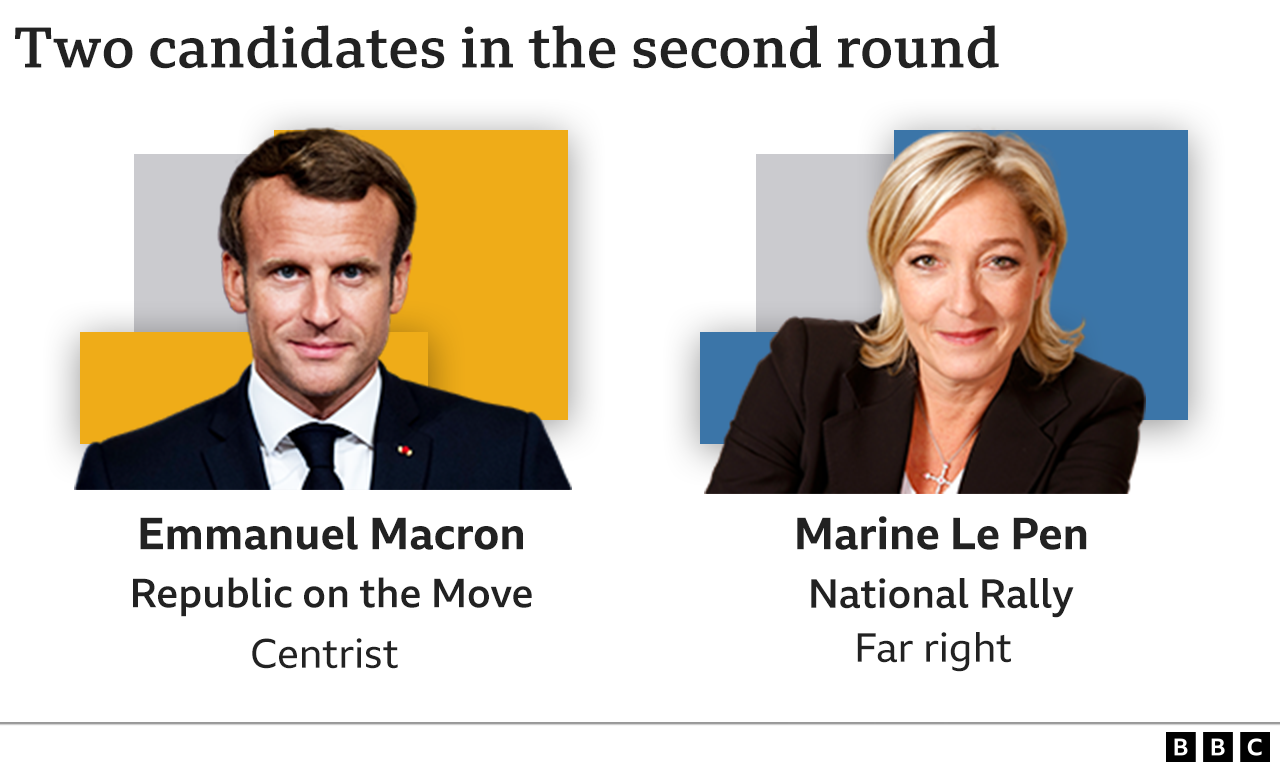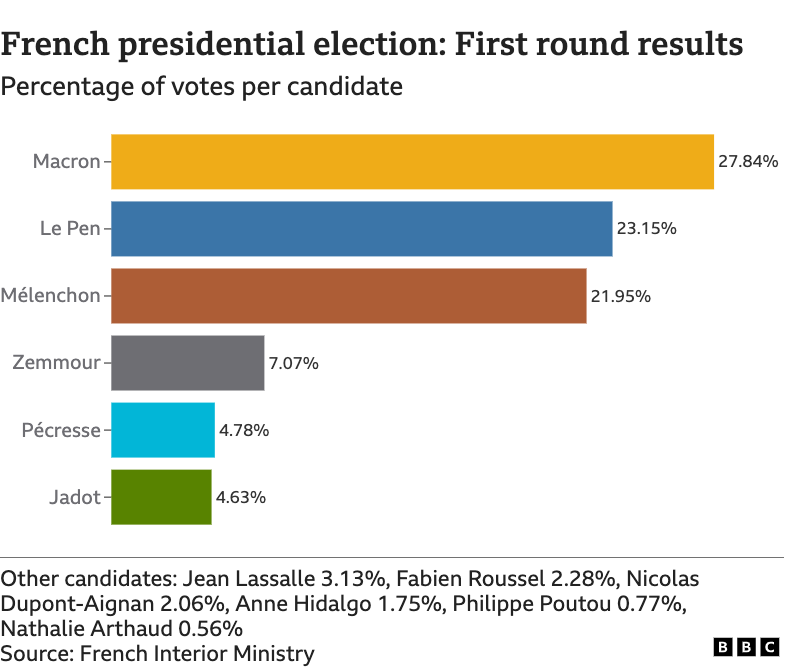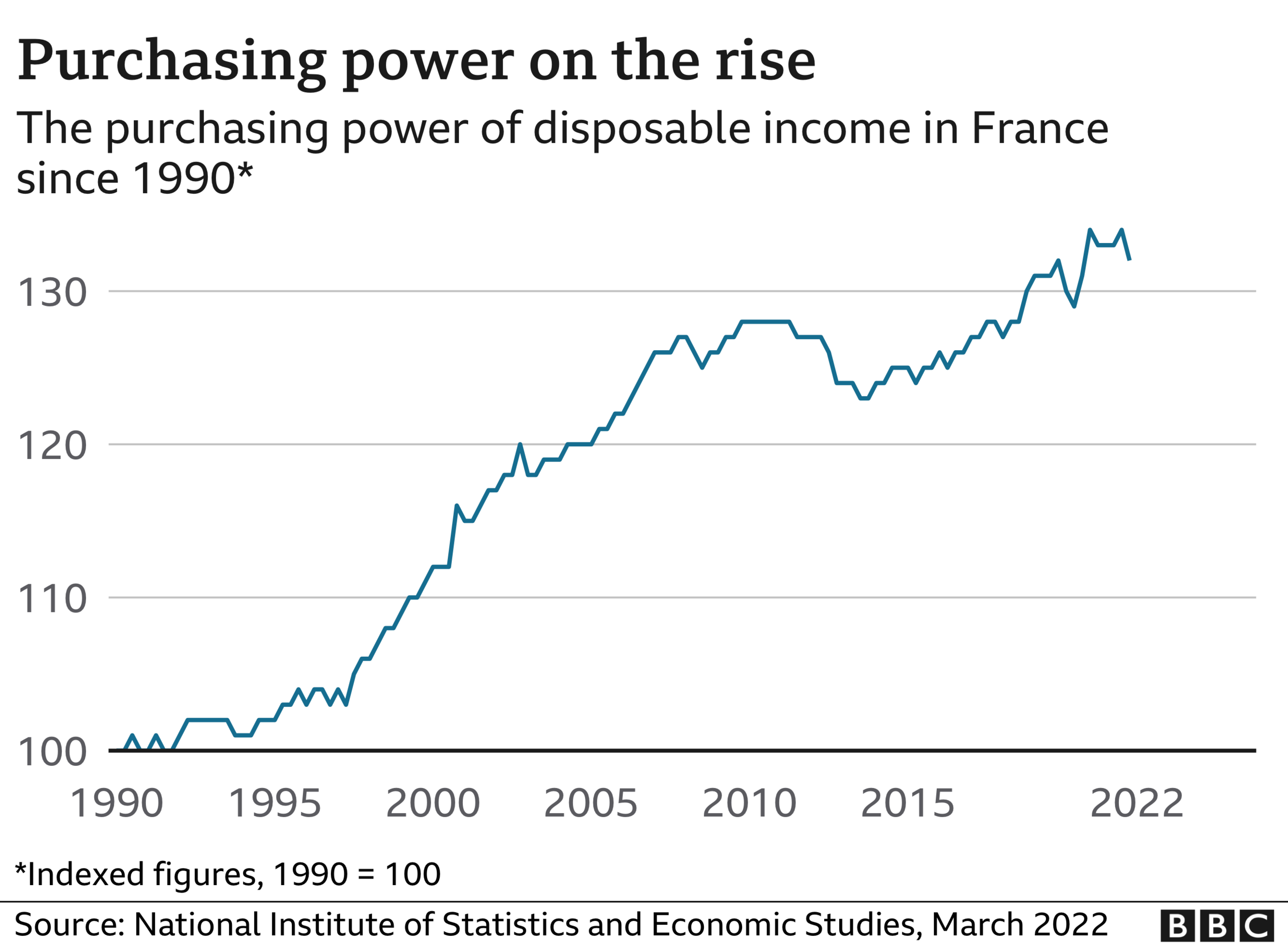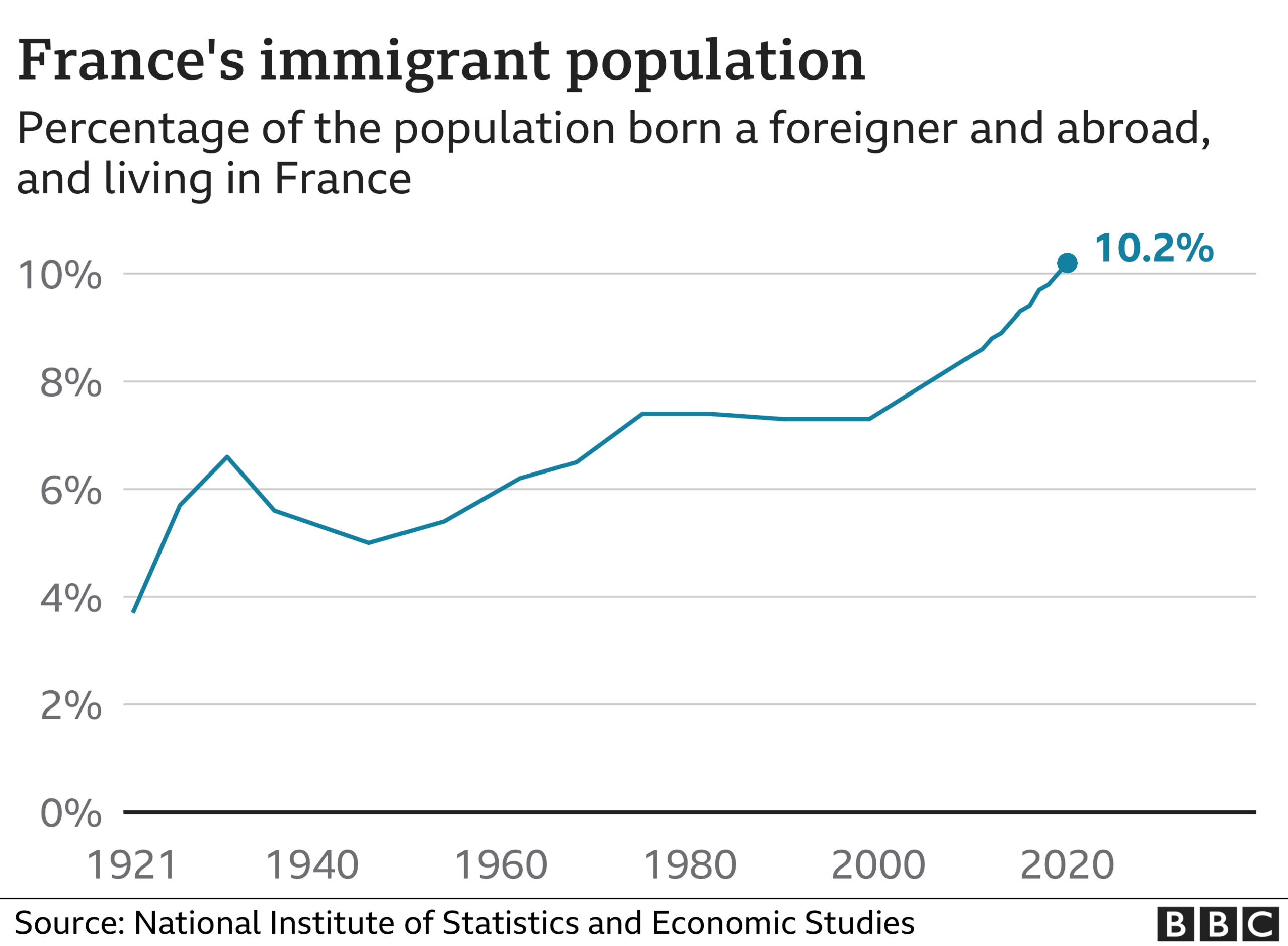French election: A really simple guide
- Published

Emmanuel Macron and Marine Le Pen will face each other in a second round of the French presidential election on Sunday.
None of the 12 candidates secured more than 50% of the votes in the first round of the presidential election on 10 April.
The candidates
Emmanuel Macron is the current president and is aiming for a second term.
He is seen as a centrist, representing the Republic on the Move (En Marche) party and attracting voters from the right and left.
Marine Le Pen is from the far-right National Rally (Rassemblement National) party.

What happened in the first round?
Emmanuel Macron attracted 27.84% of the votes cast in the first round.
Marine Le Pen scored 23.15%.

Jean-Luc Mélenchon from far-left party France Unbowed came third with just under 22%.
Overall, parties of the far left and far right gained over half the votes, whilst support for France's traditional right and left plummeted.

Analysts say it is unclear how the votes of the unsuccessful candidates may divide in the second round, and how many voters might simply stay at home.
Mr Mélenchon has told his supporters: "You must not give a single vote to Marine Le Pen," but unlike other candidates, has chosen not to back the president instead.
What do the polls say?
Several polling companies are predicting that Mr Macron will win the second round.
Mr Macron's projected lead for Sunday's vote appears to have widened since the first round to around eight to nine percentage points.
Mr Macron has warned his supporters against complacency, urging them to vote to ensure victory.
"Nothing is decided", he said.
Analysts say Ms Le Pen has moderated her stance on some issues in recent days, in an attempt to win over undecided voters.
She has promised to rule France "like a mother, with common sense".
What are the big issues?
The war in Ukraine overshadowed early campaigning, but recent opinion polls suggest that the cost of living has become the single most important issue.
Other big issues are health, security, pensions, the environment and immigration.
In January, France posted its strongest annual economic growth for half a century, bouncing back from the shock of the Covid-19 pandemic.
Spiralling energy costs and rising inflation have hit everybody in the pocket, but generally purchasing power is on the rise in France.

France has seen unemployment fall to 7.4%, just above the average for the eurozone, but close to the target set by the president when he came to power.
On immigration, official statistics suggest that in 2020 there were about 6.8 million immigrants living in France.
About a third were European, from both European Union and non-EU countries.
Overall, Algerians are the largest foreign community, followed by Moroccans and Portuguese.

Immigration has featured prominently in the campaigns of the right-wing candidates.
Ms Le Pen has proposed a referendum on major reductions in immigration if she becomes president.
On security, Emanuel Macron has pledged to put thousands more police on the streets, after sharp criticism from Ms Le Pen.
Mr Macron says that crime has fallen under his presidency.
France has suffered a string of terror attacks in recent years which have strengthened the importance of security for many French voters.